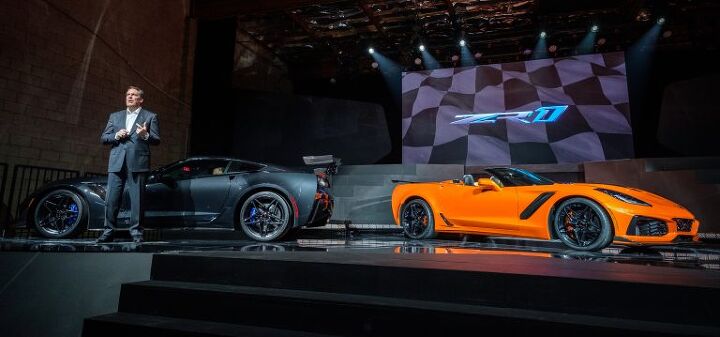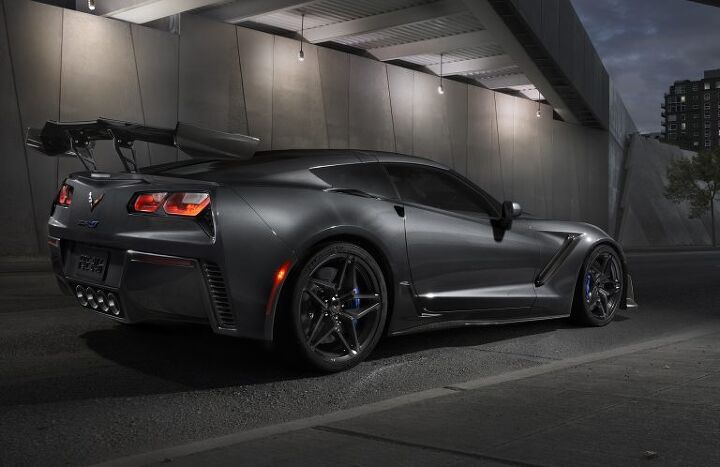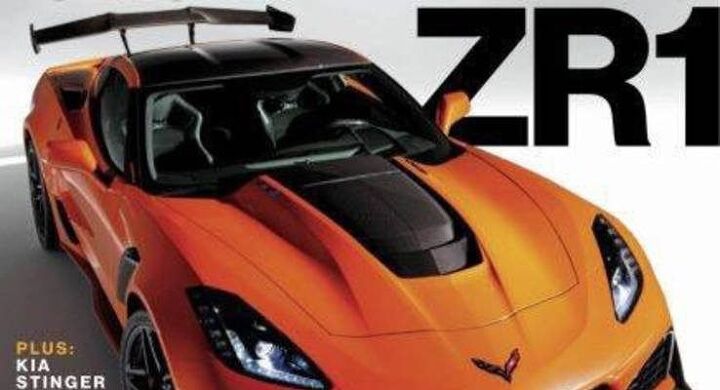#2019ChevroletCorvetteZR1
Phoning It In: Rick Hendrick Buys ZR1 #001
The most gonzo of all current Corvettes, the ZR1, packs a 755 horsepower wallop from its supercharged LT5. Chevrolet, as it has in the past with other notable versions of popular models, offered up the first retail copy to the highest bidder at Barrett-Jackson in Scottsdale.
Rick Hendrick, who is reported to already own a couple of Chevys, ponied up the cash and won the auction … despite not even being in the room.
Chevrolet Corvette ZR1 Loses Its Top During Official Debut
Even though we’ve seen it before, Chevrolet brought the 2019 Corvette ZR1 to the L.A. Auto Show to unveil its sizable price tag. Despite the six-figure sticker, the unabashedly American car manages to be a comparatively good deal for those in the market for a “budget” supercar. That doesn’t mean the ZR1 comes up short on specs. With its LT5 6.2-liter supercharged V8 pumping out 755 horsepower and 715 lb-ft of torque, it’s an SAE-certified monster of the highest order.
With a starting price of $119,995, the ZR1 remains more affordable than many exotic offerings with fewer ponies under the hood. If you need the wind in your hair, General Motors is also willing to provide a convertible variant with an MSRP of $123,995.
QOTD: Have We Entered the Golden Age of Horsepower?
Over the weekend, Chevy unveiled the chest-thumping Corvette ZR1, the fastest and most powerful production Corvette the world has ever seen. That they chose to hold the reveal of this great American nameplate in Dubai says a lot about current world affairs.
Regardless of its debut city, we’ll enjoy the fact we live in a world where one can purchase a 755 horsepower Chevy with a factory warranty. Certain corners of the internet weep into their Ovaltine about “the good old days,” hemming and hawing over the superiority of muscle machines from the ’60s and ‘70s. They were great cars, to be sure, but today’s gonzo levels of horsepower have us wondering – and asking you – where’s the upper limit for factory hot rods?
Leaked: Next Corvette to Add Heaping Helping of Horsepower
With the Corvette ZR1 currently off the table, Chevrolet has eased the existing Stingray into a comfortable 450 to 650 horsepower. While that might be enough to trounce just about anything you might encounter on the daily commute, it doesn’t have the necessary might to embarrass a Lamborghini Aventador with total assurance.
That’s unfortunate, as one of the Corvette’s best attributes is being able to bully European exotics sitting at a much higher price point. While America does have a handful of muscle and pony cars that can do the job, the majority would have trouble accomplishing that feat going any direction other than straight. So, with Dodge’s Viper now absent from the automotive landscape, we could really use the ZR1 right about now.
Fortunately, it’s coming soon and it’s bringing 750 horsepower with it.



















Recent Comments